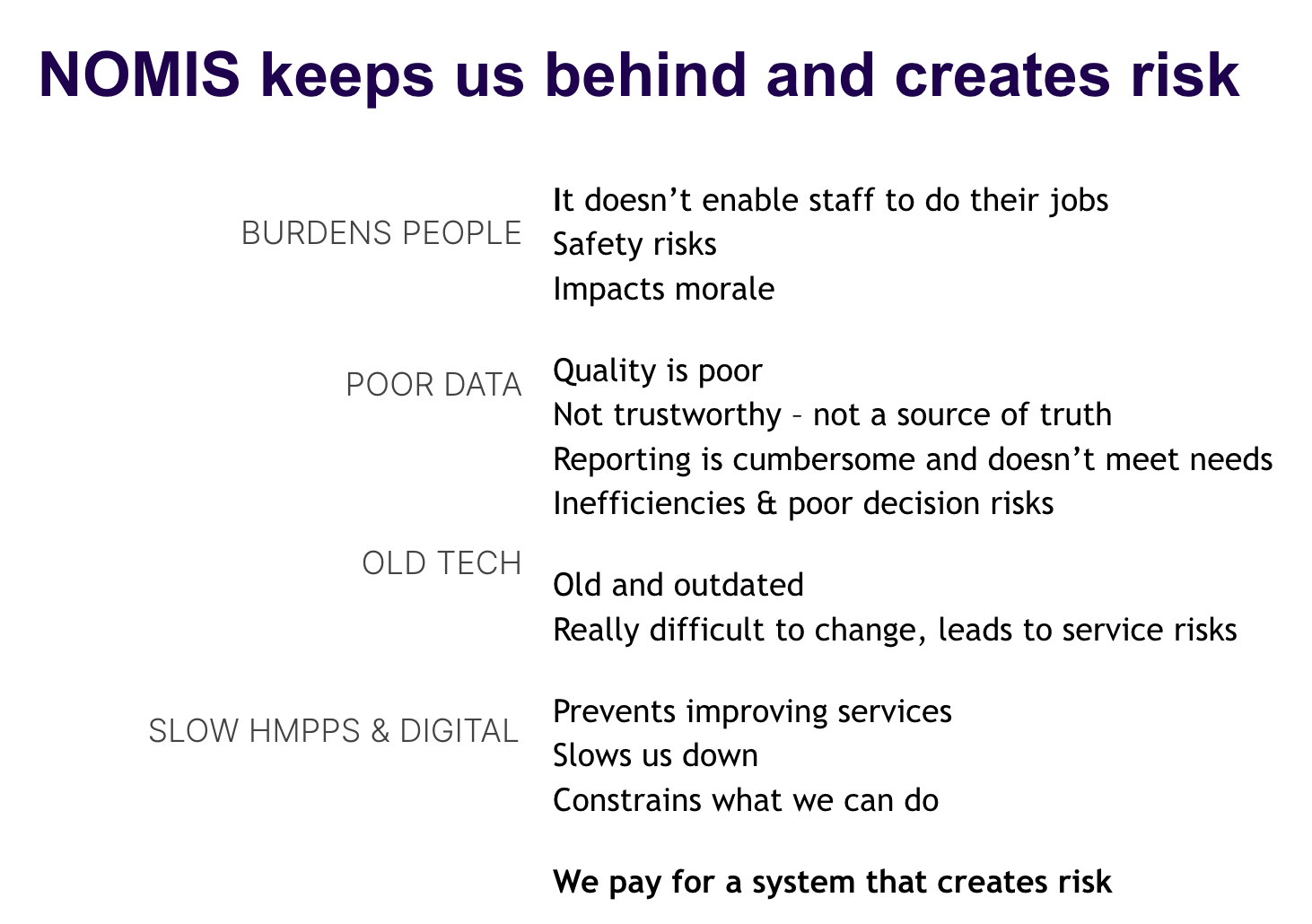Legacy Systems
Any new digital service will, to a greater or lesser degree, need to integrate with one or more of our legacy services. Usually, although not always, this will take the form of reading data from a legacy services’ API, and emitting a domain event that can be consumed by a legacy service.
On this page you’ll find a rundown of the four main legacy systems and who to speak to start your journey with integrating with them.
NOMIS (Prisons)
National Offender Management Information System (NOMIS) is the current authority system for information management and administrations of HMPPS Prisons. Developed by Syscon, it was originally deployed into HMPPS xx years ago but is suffering from a number of constrains typical for a system of this age:

As such a programme of work is underway to replace NOMIS with a new suite of digital solutions.
Delius (Probation)
Delius (also known as NDelius for National Delius) is the main case/person management system used by Probation Practitioners to manage people on probation (community licenses).
Delius product team pages (requires Confluence account)
PPUD (Probation and Prison)
Public Protection Unit Database (PPUD) is used for various Public Protection purposes, including managing parole, managing recalls, managing mental health transfers and managing serious complaints and incidents.
It is developed and supported by Lumen. See PPUD
for some useful context.
Getting the data
There is currently no API available to enable integrations with PPUD. In the first instance contact the #hmpps-technical-architecture channel.
OASys (Probation and Prison)
Offender Assessment System (OASys) which manages most of the risk assessments and sentence plans across both the Probation and Prison Services.
OASys is a Oracle APEX application hosted in MoJ’s Azure fix-n-go environment.
Also see the Assess Risks and Needs project.
NDH (Prison and Probation)
Not a user-facing service, but a legacy component that exchanges data between NOMIS, NDelius and OASys. You’re unlikely to need to know too much about this, but it may be good to know of its existence, especially if you’re looking to integrate with multiple legacy services.
New digital services will use Domain Events and APIs to facilitate data exchanges between systems.
Also see the Assess Risks and Needs (requires Confluence account) project.